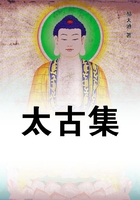Dasius, we may reasonably accept his testimony as to the manner and cause of the martyrdom, all the more because his narrative is precise, circumstantial, and entirely free from the miraculous element. Accordingly I conclude that the account which he gives of the celebration of the Saturnalia among the Roman soldiers is trustworthy.
This account sets in a new and lurid light the office of the King of the Saturnalia, the ancient Lord of Misrule, who presided over the winter revels at Rome in the time of Horace and Tacitus. It seems to prove that his business had not always been that of a mere harlequin or merry-andrew whose only care was that the revelry should run high and the fun grow fast and furious, while the fire blazed and crackled on the hearth, while the streets swarmed with festive crowds, and through the clear frosty air, far away to the north, Soracte showed his coronal of snow. When we compare this comic monarch of the gay, the civilised metropolis with his grim counterpart of the rude camp on the Danube, and when we remember the long array of similar figures, ludicrous yet tragic, who in other ages and in other lands, wearing mock crowns and wrapped in sceptred palls, have played their little pranks for a few brief hours or days, then passed before their time to a violent death, we can hardly doubt that in the King of the Saturnalia at Rome, as he is depicted by classical writers, we see only a feeble emasculated copy of that original, whose strong features have been fortunately preserved for us by the obscure author of the Martyrdom of St. Dasius. In other words, the martyrologist's account of the Saturnalia agrees so closely with the accounts of similar rites elsewhere which could not possibly have been known to him, that the substantial accuracy of his description may be regarded as established; and further, since the custom of putting a mock king to death as a representative of a god cannot have grown out of a practice of appointing him to preside over a holiday revel, whereas the reverse may very well have happened, we are justified in assuming that in an earlier and more barbarous age it was the universal practice in ancient Italy, wherever the worship of Saturn prevailed, to choose a man who played the part and enjoyed all the traditionary privileges of Saturn for a season, and then died, whether by his own or another's hand, whether by the knife or the fire or on the gallows-tree, in the character of the good god who gave his life for the world. In Rome itself and other great towns the growth of civilisation had probably mitigated this cruel custom long before the Augustan age, and transformed it into the innocent shape it wears in the writings of the few classical writers who bestow a passing notice on the holiday King of the Saturnalia. But in remoter districts the older and sterner practice may long have survived; and even if after the unification of Italy the barbarous usage was suppressed by the Roman government, the memory of it would be handed down by the peasants and would tend from time to time, as still happens with the lowest forms of superstition among ourselves, to lead to a recrudescence of the practice, especially among the rude soldiery on the outskirts of the empire over whom the once iron hand of Rome was beginning to relax its grasp.
The resemblance between the Saturnalia of ancient and the Carnival of modern Italy has often been remarked; but in the light of all the facts that have come before us, we may well ask whether the resemblance does not amount to identity. We have seen that in Italy, Spain, and France, that is, in the countries where the influence of Rome has been deepest and most lasting, a conspicuous feature of the Carnival is a burlesque figure personifying the festive season, which after a short career of glory and dissipation is publicly shot, burnt, or otherwise destroyed, to the feigned grief or genuine delight of the populace. If the view here suggested of the Carnival is correct, this grotesque personage is no other than a direct successor of the old King of the Saturnalia, the master of the revels, the real man who personated Saturn and, when the revels were over, suffered a real death in his assumed character. The King of the Bean on Twelfth Night and the mediaeval Bishop of Fools, Abbot of Unreason, or Lord of Misrule are figures of the same sort and may perhaps have had a similar origin. Whether that was so or not, we may conclude with a fair degree of probability that if the King of the Wood at Aricia lived and died as an incarnation of a sylvan deity, he had of old a parallel at Rome in the men who, year by year, were slain in the character of King Saturn, the god of the sown and sprouting seed.















